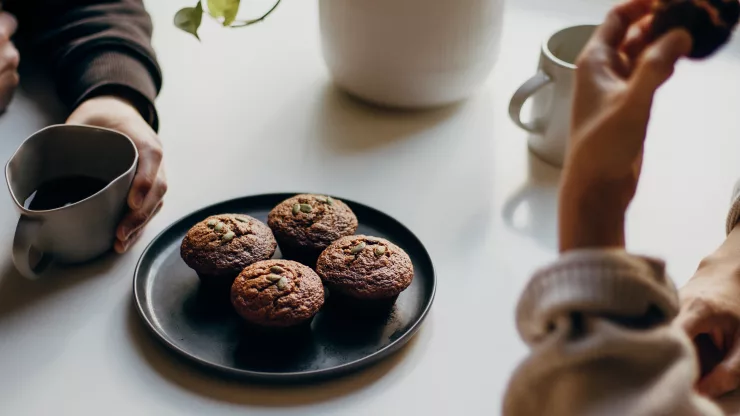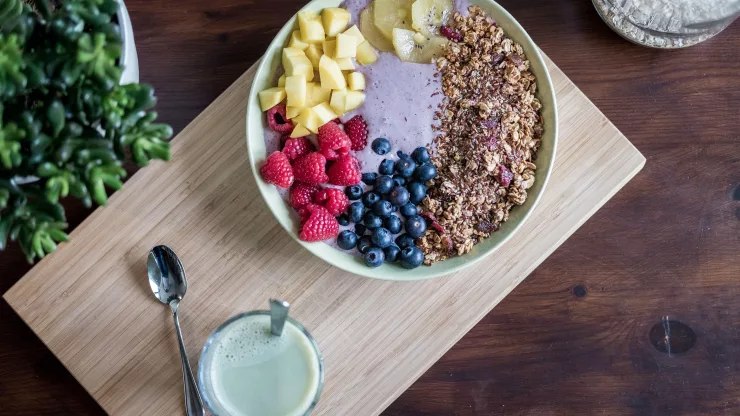Jump to Section
Introduction: Why Eating for Energy is Key to Health and Wellness
Eating for energy is a crucial aspect of maintaining optimal health and wellness.
The food we consume provides our bodies with the nutrients and energy needed to carry out daily activities, from simple tasks like walking to more complex tasks like working out.
However, not all foods are created equal when it comes to fueling our bodies. Consuming nutrient-rich foods and staying hydrated are key components of eating for energy.
The benefits of eating for energy are numerous.
Not only does a balanced diet improve physical health, but it also has a positive impact on mental health.
Eating nutrient-rich foods can boost brain function, improve mood, and reduce stress levels.
Additionally, maintaining a healthy weight and reducing the risk of chronic diseases such as diabetes and heart disease are other benefits of consuming a healthy diet.
Nutrient-Rich Foods: What to Eat for Optimal Energy
Eating a variety of nutrient-rich foods is essential for optimal energy levels. These foods are packed with vitamins, minerals, and other essential nutrients that our bodies need to function properly.
Some examples of nutrient-rich foods include:
- Leafy greens such as spinach and kale
- Whole grains such as quinoa and brown rice
- Lean proteins such as chicken and fish
- Fruits such as berries and bananas
- Nuts and seeds such as almonds and chia seeds
Incorporating these foods into your diet can help boost energy levels and improve overall health. It’s also essential to limit processed foods, sugary drinks, and foods high in saturated and trans fats.
Hydration: The Importance of Water in Boosting Energy Levels
Staying hydrated is another essential component of eating for energy. Dehydration can lead to fatigue, headaches, and decreased cognitive function.
Drinking water throughout the day can help maintain energy levels and improve overall health.
The amount of water needed varies from person to person, but a general rule of thumb is to drink at least eight glasses of water per day.
In addition to drinking water, consuming foods with high water content can also help with hydration. Some examples include watermelon, cucumbers, and celery.
Avoiding sugary drinks and excessive alcohol consumption is also key to staying hydrated.
Meal Planning: How to Strategize Your Eating for Maximum Energy
Meal planning is an effective way to ensure that you’re consuming nutrient-rich foods and staying hydrated. Planning meals ahead of time can also save time and money.
Here are some tips for meal planning for optimal energy:
- Plan meals around nutrient-rich foods such as lean proteins, whole grains, and vegetables.
- Prep meals and snacks ahead of time to have healthy options readily available.
- Incorporate a variety of foods to ensure that you’re consuming all necessary nutrients.
- Don’t skip meals, as this can lead to decreased energy levels.
Creating a meal plan that works for your lifestyle and preferences can help you maintain consistent energy levels throughout the day.
Mindful Eating: How to Eat for Energy and Enjoyment
Mindful eating is a practice that involves being present and focused while eating.
It can help with portion control, reducing stress levels, and improving digestion.
Here are some tips for mindful eating:
- Eat in a calm and distraction-free environment.
- Take time to appreciate the flavors and textures of food.
- Chew food thoroughly and eat slowly.
- Listen to your body’s hunger and fullness cues.
Incorporating mindful eating into your routine can help you enjoy food more while also improving energy levels and overall health.
Conclusion: How Eating for Energy Can Transform Your Life
Eating for energy is a crucial aspect of maintaining optimal health and wellness.
Consuming nutrient-rich foods, staying hydrated, and incorporating mindful eating practices can lead to increased energy levels, improved mental and physical health, and a better quality of life.
By making small changes to your diet and eating habits, you can transform your health and well-being.
FAQ
How much water should I drink per day?
The amount of water needed varies from person to person, but a general rule of thumb is to drink at least eight glasses of water per day.
Can I still eat my favorite foods while eating for energy?
Yes, you can still enjoy your favorite foods while eating for energy. It’s all about balance and moderation.
Incorporating nutrient-rich foods into your diet and limiting processed and unhealthy foods can help maintain energy levels and overall health.
How can I incorporate mindful eating into my routine?
Incorporating mindful eating into your routine can be as simple as finding a quiet and distraction-free place to eat, taking time to appreciate the flavors and textures of food, and listening to your body’s hunger and fullness cues.

With a deep passion for personal development, Ben has dedicated his career to inspiring and guiding others on their journey towards self-improvement.
His love for learning and sharing knowledge about personal growth strategies, mindfulness, and goal-setting principles has led him to create My Virtual Life Coach.
Contact Ben at [email protected] for assistance.




